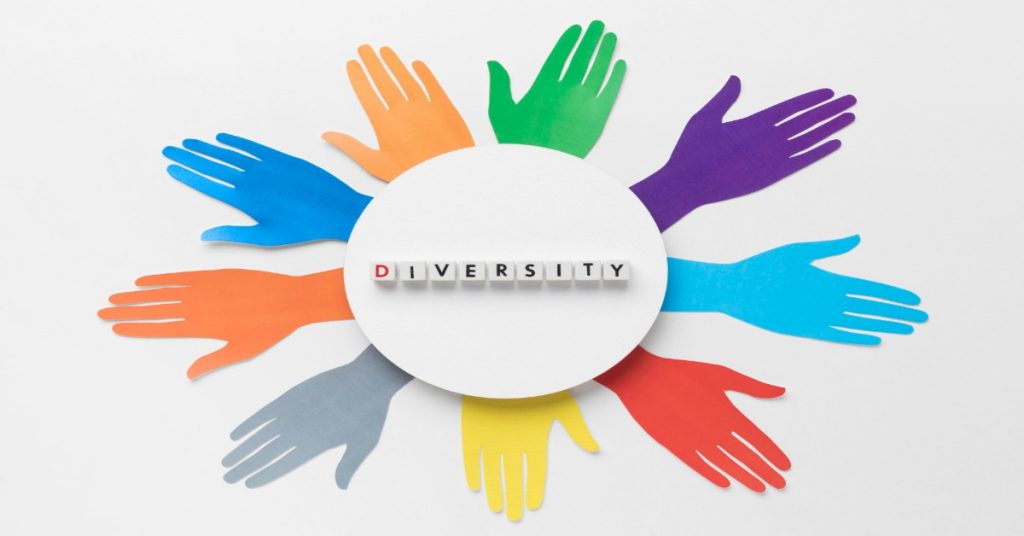
Corporate Social Responsibility (CSR) has evolved from a peripheral corporate obligation to a strategic imperative that drives both business success and societal impact. For non-governmental organizations (NGOs), this shift presents unprecedented opportunities to secure funding, forge partnerships, and amplify their missions.
As we approach 2025, NGOs must align with emerging CSR trends to maximize their impact and financial sustainability. This blog explores the most profitable CSR trends for NGOs in 2025, offering actionable insights grounded in expertise and real-world examples.
The Evolution of CSR: A New Era for NGOs
CSR has transcended traditional philanthropy, becoming a cornerstone of modern business strategy. Companies are no longer satisfied with writing checks; they seek meaningful partnerships that align with their values and resonate with stakeholders. For NGOs, this means a chance to tap into corporate resources, expertise, and networks to drive sustainable change.
The global CSR market is booming, with companies allocating significant budgets to social and environmental initiatives. According to a 2025 report, the NGO and charitable organization market is projected to grow at a 5.8% CAGR, reaching $443.2 billion by 2033, largely driven by increased CSR spending. NGOs that understand and leverage these trends can secure more funding and create lasting impact.
CSR Trend 1: Sustainability and Climate Action
Why It’s Profitable
Sustainability remains a top priority for corporations in 2025, driven by consumer demand and regulatory pressures. The European Union’s Corporate Sustainability Reporting Directive (CSRD) mandates sustainability reporting for nearly 50,000 companies, while states like California enforce climate-risk disclosures. NGOs focusing on environmental conservation, renewable energy, or carbon reduction can attract partnerships with businesses aiming to meet these mandates.
How NGOs Can Capitalize
NGOs with expertise in climate action can offer corporations data-driven solutions, such as carbon offset programs or community-based conservation projects. For example, an NGO like The Nature Conservancy partners with companies to implement reforestation initiatives, providing measurable outcomes that enhance corporate sustainability reports. By aligning with corporate net-zero goals, NGOs can secure long-term funding.
Case Study
In India, Smile Foundation partnered with the Pepsico Foundation to distribute over 50,000 PPE kits and medical equipment during the COVID-19 pandemic, demonstrating how NGOs can pivot to address urgent needs while aligning with corporate CSR goals. Similar partnerships in climate action can yield significant funding for NGOs in 2025.
CSR Trend 2: Diversity, Equity, and Inclusion (DEI)
Why It’s Profitable
DEI has become a critical component of CSR, with 67% of consumers trusting companies committed to social issues, according to the 2025 Edelman Trust Barometer. Companies are investing in inclusive workplaces and community programs to enhance their reputation and attract talent. NGOs focused on social equity, education, or marginalized communities can tap into these corporate priorities.
How NGOs Can Capitalize
NGOs can develop programs that align with corporate DEI goals, such as workforce training for underrepresented groups or educational initiatives for underserved communities. For instance, an NGO like Pratham Education Foundation in India collaborates with corporations to provide vocational training, directly supporting corporate DEI objectives while securing funding.
Real-World Impact
Team Everest, a youth-led NGO in India, has successfully partnered with companies to offer scholarship programs for underprivileged children, aligning with corporate DEI and education goals. Their transparent reporting and community-focused approach make them a preferred CSR partner, demonstrating the profitability of DEI-focused initiatives.

CSR Trend 3: Technology-Driven Impact
Why It’s Profitable
The rapid advancement of technology is reshaping CSR, with companies leveraging AI, data analytics, and mobile platforms to enhance their social impact. NGOs that integrate technology into their programs can attract tech-savvy corporations seeking innovative solutions. The adoption of CRM software and predictive analytics is also streamlining NGO operations, making them more appealing to corporate partners.
How NGOs Can Capitalize
NGOs can use technology to scale their impact and improve transparency. For example, an NGO focused on education might partner with a tech company to develop digital learning tools for rural communities. By showcasing measurable outcomes through data analytics, NGOs can build trust and secure ongoing corporate support.
Example in Action
GiveIndia Foundation uses digital platforms to facilitate transparent donations, allowing corporations to track their contributions’ impact. This tech-driven approach has made them a go-to partner for companies seeking data-backed CSR initiatives, ensuring consistent funding streams.
CSR Trend 4: Community Engagement and Volunteering
Why It’s Profitable
Community engagement is a cornerstone of CSR in 2025, with companies prioritizing local impact to build trust and loyalty. Corporate volunteering programs are gaining traction, as they boost employee morale and align with community-driven CSR goals. NGOs that offer structured volunteering opportunities can attract corporate partners looking to engage their workforce.
How NGOs Can Capitalize
NGOs can design volunteer programs that align with corporate CSR objectives, such as environmental cleanups or mentorship initiatives. By providing clear metrics on community impact, NGOs can strengthen their case for corporate funding. Team Everest’s employee volunteering programs, aligned with Sustainable Development Goals (SDGs), are a prime example of this strategy.
Success Story
The Akshaya Patra Foundation partners with corporations to provide midday meals to schoolchildren, incorporating employee volunteering to enhance engagement. This model not only addresses hunger but also strengthens corporate-NGO partnerships, leading to sustained funding.
CSR Trend 5: Impact Measurement and Transparency
Why It’s Profitable
Funders and stakeholders increasingly demand evidence of program effectiveness, making impact measurement a critical CSR trend in 2025. Companies are publishing detailed sustainability reports to showcase their CSR outcomes, and NGOs that provide transparent, data-driven results are more likely to secure partnerships.
How NGOs Can Capitalize
NGOs should invest in robust impact measurement systems, such as CRM software or third-party evaluation tools, to track and report outcomes. By sharing success stories and challenges transparently, NGOs can build credibility and foster long-term corporate relationships.
Practical Application
Oxfam’s annual impact reports detail their progress in poverty alleviation and gender equality, providing corporations with clear evidence of their contributions’ impact. This transparency has helped Oxfam secure partnerships with global brands, ensuring financial stability.
CSR Trend 6: Ethical Supply Chains
Why It’s Profitable
Consumers are increasingly demanding ethical supply chains, prompting companies to prioritize transparency and sustainability in their operations. NGOs with expertise in fair trade, labor rights, or environmental standards can partner with corporations to ensure ethical practices, creating a win-win scenario.
How NGOs Can Capitalize
NGOs can offer auditing services, training programs, or certifications to help companies achieve ethical supply chain goals. For example, an NGO focused on labor rights might collaborate with a retailer to ensure fair wages for factory workers, securing funding while advancing social justice.
Case Study
Fair Trade USA partners with companies to certify ethical supply chains, providing a framework for sustainable sourcing. This collaboration not only enhances corporate reputation but also provides NGOs with steady funding to expand their programs.

CSR Trend 7: Disaster Preparedness and Response
Why It’s Profitable
With climate-related disasters on the rise, companies are prioritizing disaster preparedness and response as part of their CSR strategies. NGOs with expertise in emergency relief can position themselves as critical partners, securing funding for both immediate response and long-term resilience programs.
How NGOs Can Capitalize
NGOs can develop disaster response plans that align with corporate CSR goals, such as pre-positioning resources or training communities in resilience. By demonstrating readiness and impact, NGOs can attract corporate partners looking to make a tangible difference.
Real-World Example
Direct Relief, a global humanitarian NGO, partners with corporations to provide medical supplies during disasters. Their proactive approach and transparent reporting have made them a trusted CSR partner, ensuring consistent funding.
People Also Ask (PAA) Questions
1. What is the role of NGOs in CSR?
NGOs play a pivotal role in CSR by partnering with corporations to implement programs that address social and environmental challenges. They provide expertise, community insights, and measurable outcomes, helping companies achieve their CSR goals while securing funding for their missions.
2. How can NGOs secure CSR funding in 2025?
NGOs can secure CSR funding by aligning their programs with corporate priorities, such as sustainability, DEI, or community engagement. Building transparent, data-driven proposals and fostering long-term partnerships are key to attracting corporate support.
3. Why is transparency important in CSR partnerships?
Transparency builds trust between NGOs and corporations, ensuring accountability and demonstrating impact. By sharing detailed reports on program outcomes, NGOs can strengthen their credibility and secure ongoing funding.
4. How does technology enhance CSR initiatives?
Technology enhances CSR by enabling data-driven impact measurement, improving program scalability, and increasing transparency. NGOs using digital tools, like CRM software or mobile apps, can attract tech-focused corporate partners.
5. What are the benefits of corporate-NGO partnerships?
Corporate-NGO partnerships provide NGOs with funding, resources, and visibility while helping companies achieve CSR goals and enhance their reputation. These collaborations drive meaningful social impact and foster mutual growth.

Challenges and Considerations
While these trends offer significant opportunities, NGOs must navigate challenges to maximize profitability. Regulatory changes, such as the EU’s CSRD, may strain corporate budgets, leading to increased scrutiny of CSR investments. NGOs must demonstrate clear ROI through measurable outcomes to remain competitive.
Additionally, political shifts, such as policy rollbacks in some regions, may impact CSR priorities. NGOs should remain agile, adapting their programs to align with evolving corporate strategies while staying true to their missions.
Strategies for NGOs to Stay Ahead
- Build Strategic Partnerships: Identify corporations with aligned values and propose co-created programs that deliver mutual benefits.
- Invest in Technology: Adopt CRM software, data analytics, or mobile platforms to enhance program delivery and transparency.
- Focus on Measurable Impact: Develop robust impact measurement systems to provide corporations with clear evidence of their contributions.
- Engage Younger Generations: Tailor programs to appeal to Millennials and Gen Z, who prioritize sustainability and ethical practices.
- Stay Informed: Monitor regulatory and societal changes to anticipate shifts in corporate CSR priorities.
The Future of CSR and NGOs
The CSR landscape in 2025 is dynamic, driven by consumer demand, regulatory mandates, and technological advancements. NGOs that align with these trends—sustainability, DEI, technology, community engagement, transparency, ethical supply chains, and disaster preparedness—can position themselves as indispensable partners for corporations. By leveraging their expertise and demonstrating measurable impact, NGOs can secure sustainable funding and drive transformative change.
As the world grapples with complex challenges like climate change, inequality, and technological disruption, the role of NGOs in CSR will only grow. By embracing these profitable trends, NGOs can not only survive but thrive, creating a more equitable and sustainable future for all.
Read More
How to Design CSR Programs That Attract Corporate Support: A Strategic Guide for Nonprofits
The Fastest Way to Secure CSR Partnerships for Your NGO
The 1 Funding Mistake NGOs Make When Seeking CSR Funding (And How to Fix It)
Conclusion
The most profitable CSR trends for NGOs in 2025 revolve around aligning with corporate priorities, leveraging technology, and demonstrating transparency. By focusing on sustainability, DEI, community engagement, and impact measurement, NGOs can forge strong partnerships that drive both financial stability and social impact. As CSR continues to evolve, NGOs that adapt to these trends will lead the way in building a better world.
